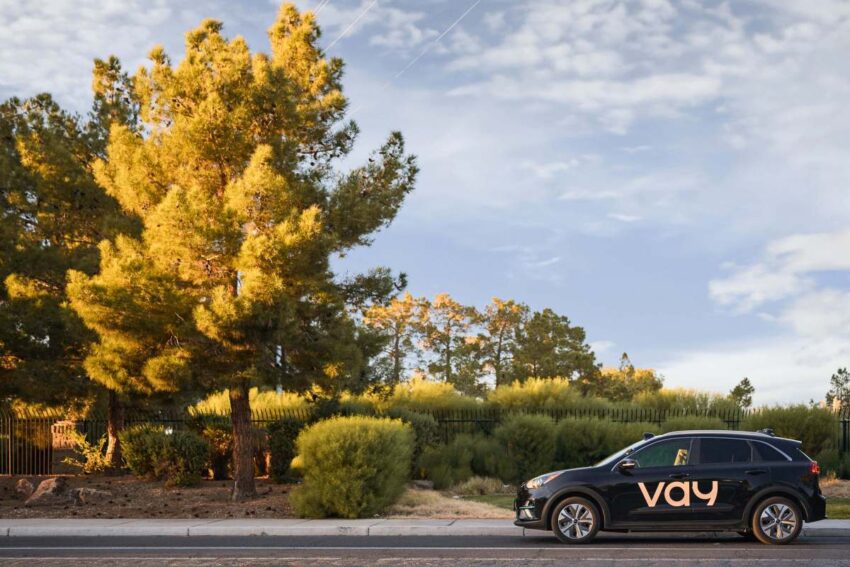
remote driving startup vay could grab up Vay, a German startup specializing in remote-controlled rental cars, is poised to receive an investment of up to $410 million from Singaporean super-app company Grab.
remote driving startup vay could grab up
Overview of Vay’s Business Model
Founded in 2020, Vay has emerged as a pioneer in the realm of remote driving technology. The company offers a unique service that allows users to rent vehicles that can be controlled remotely, enabling a seamless and innovative transportation experience. This model not only enhances convenience for users but also addresses various challenges associated with traditional car rentals.
Vay’s approach involves a combination of advanced technology and user-centric design. By leveraging high-definition cameras, sensors, and artificial intelligence, Vay enables drivers to operate vehicles from a distance, making it possible to navigate through urban environments without being physically present in the car. This technology is particularly beneficial in densely populated areas where parking and traffic can be significant hurdles.
The Investment from Grab
Grab, a dominant player in Southeast Asia’s ride-hailing and food delivery markets, has announced its intention to invest up to $410 million in Vay. This investment is part of Grab’s broader strategy to diversify its offerings and enhance its technological capabilities. By partnering with Vay, Grab aims to integrate remote driving technology into its existing services, potentially revolutionizing the way users interact with transportation.
The collaboration between Vay and Grab is expected to yield several advantages for both companies. For Vay, the financial backing from Grab will provide the necessary resources to scale its operations and accelerate the development of its technology. Meanwhile, Grab stands to benefit from Vay’s innovative solutions, which could enhance its competitive edge in the rapidly evolving mobility landscape.
Implications for the Transportation Industry
The investment from Grab signals a significant shift in the transportation industry, particularly in the realm of autonomous and remote-controlled vehicles. As urbanization continues to rise, cities are facing increasing pressure to develop efficient and sustainable transportation solutions. Vay’s remote driving technology offers a potential answer to these challenges by reducing the need for physical car ownership and promoting shared mobility.
Moreover, the integration of remote driving technology could lead to safer driving conditions. By allowing trained professionals to operate vehicles remotely, Vay can potentially reduce the number of accidents caused by inexperienced drivers. This aspect of remote driving technology aligns with broader trends in the industry, where safety and efficiency are paramount.
Potential Challenges
Despite the promising outlook, the adoption of remote driving technology is not without its challenges. Regulatory hurdles remain a significant concern, as governments around the world grapple with how to manage the implications of remote vehicle operation. The legal framework surrounding remote driving is still in its infancy, and Vay will need to navigate these complexities as it seeks to expand its services.
Additionally, public perception plays a crucial role in the acceptance of new technologies. While many consumers are eager to embrace innovations, others may harbor concerns about safety and reliability. Vay will need to invest in marketing and education efforts to build trust and demonstrate the efficacy of its remote driving technology.
Stakeholder Reactions
The announcement of Grab’s investment in Vay has elicited a range of reactions from industry stakeholders. Investors and analysts have expressed optimism about the potential for growth in the remote driving sector. Many view this partnership as a strategic move that could set a precedent for future collaborations between technology startups and established companies in the transportation space.
Industry experts have also highlighted the importance of this investment in the context of the ongoing shift toward autonomous vehicles. As traditional automotive manufacturers face increasing competition from tech startups, collaborations like the one between Vay and Grab could reshape the competitive landscape. The ability to leverage advanced technologies will be crucial for companies looking to maintain their market position.
Market Trends in Remote Driving
The remote driving market is still in its nascent stages, but several trends are emerging that indicate a growing interest in this technology. As urban populations swell, the demand for efficient transportation solutions is becoming more pronounced. Remote driving could play a pivotal role in addressing these needs by providing flexible and scalable options for urban mobility.
Moreover, advancements in artificial intelligence and machine learning are facilitating the development of more sophisticated remote driving systems. As these technologies continue to evolve, the capabilities of remote-controlled vehicles are expected to expand, further enhancing their appeal to consumers and businesses alike.
Vay’s Future Prospects
With the backing of Grab, Vay is well-positioned to capitalize on the growing interest in remote driving technology. The investment will enable the company to accelerate its research and development efforts, potentially leading to the introduction of new features and services that enhance the user experience.
Furthermore, Vay’s partnership with Grab could open doors to new markets and customer segments. As Grab continues to expand its footprint in Southeast Asia, Vay may have the opportunity to introduce its remote driving services to a broader audience. This expansion could be particularly beneficial in regions where traditional car rental services are limited or where urban congestion poses significant challenges.
Conclusion
The investment from Grab represents a significant milestone for Vay and the remote driving industry as a whole. As both companies work together to integrate advanced technology into their offerings, the potential for innovation and growth is substantial. The collaboration could pave the way for a new era of transportation, where remote driving becomes a standard feature of urban mobility solutions.
As Vay continues to develop its technology and expand its operations, the implications for the transportation industry will be closely watched. The success of this partnership may serve as a blueprint for future collaborations between tech startups and established companies, ultimately shaping the future of how we move in urban environments.
Source: Original report
Was this helpful?
Last Modified: November 10, 2025 at 7:38 pm
4 views















